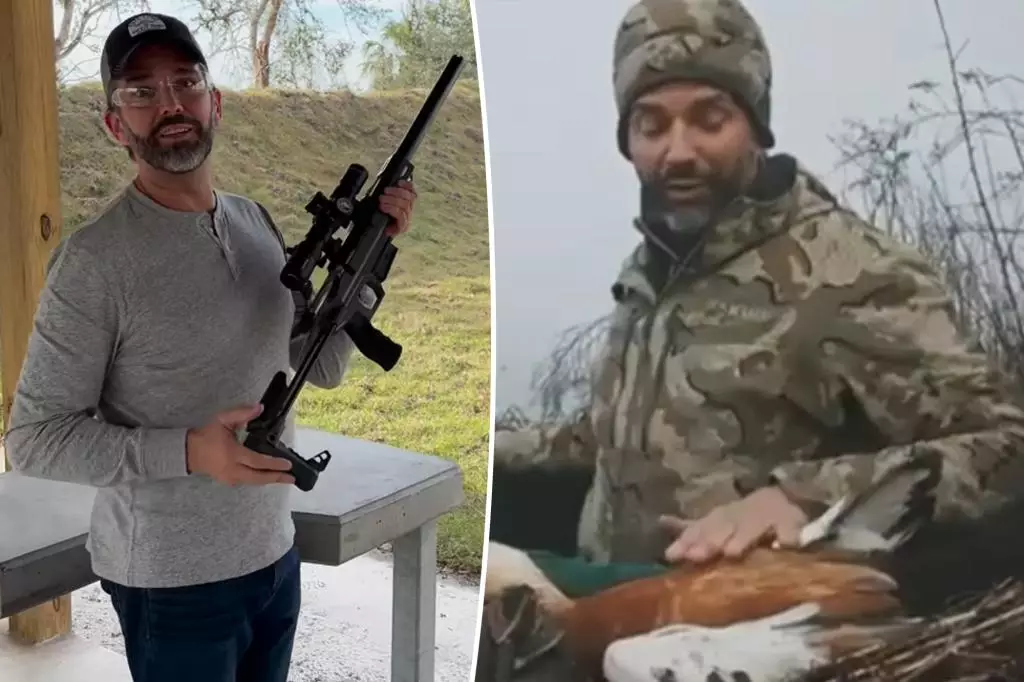Donald Trump Jr. recently found himself at the center of a storm of criticism after a hunting trip in Italy featured in a controversial video. This incident, involving a rare duck, has stirred significant debate among wildlife advocates and local politicians, raising questions about hunting ethics and regulations. As the dust settles, it’s important to dissect the implications surrounding the event and the broader context of hunting as a leisure activity.
A video showcasing Donald Trump Jr. hunting ducks surfaced, igniting a firestorm among animal rights activists and prompting calls for an investigation. Activists quickly identified one of the deceased birds as potentially belonging to a rare species, which allegedly triggered a demand for accountability from local authorities. The uproar emphasizes the delicate balance between hunting as a sport and the conservation of wildlife, highlighting how cultural differences impact perceptions of hunting practices.
In response to the backlash, Trump Jr. asserted that he and his group had obtained all necessary permits to conduct their activities legally. His spokesperson reiterated that the hunting trip was within legal boundaries, suggesting that the ensuing controversy was largely overblown. Yet, the presence of activists and their vocal opposition points to a larger concern regarding hunting tourism and the environmental responsibility it entails.
The legal framework governing hunting in Italy is stringent. Local laws dictate that only residents of specific regions are allowed to hunt, with a requisite hunting license issued by the police. Critics allege that Trump Jr.’s presence as a non-resident raises questions about the legality of his hunt. Italian politician Andrea Zanoni has voiced the need for scrutiny, suggesting that if the allegations surrounding Trump Jr.’s hunting licenses and permits prove valid, it could lead to serious legal consequences.
This situation underscores the complexities and challenges that accompany international hunting trips. Different countries enforce various hunting regulations, and non-compliance can have far-reaching implications not only for individual hunters but also for wildlife conservation efforts. As global citizens engage more in hunting tourism, understanding local laws becomes imperative to avoid conflicts between cultural practices and wildlife protection initiatives.
Hunting has historically served as a means of sustenance and a cultural practice for many societies. However, the commercialization of hunting tourism has transformed the way people engage with this traditional practice. In regions like Italy, the balance between preserving biodiversity and allowing hunting as a leisure activity remains a contentious debate. The rise of animal activism has added pressure to ensure that hunting is conducted ethically and responsibly.
As this incident illuminates, the clash between recreational hunters and conservationists is increasingly fraught with tension. While some view hunting as an ethical means of wildlife management, others perceive it as an affront to animal rights. The public figures involved, such as Trump Jr., operate under a microscope, amplifying their actions’ ramifications on public opinion and policy.
Given the high-profile nature of Trump Jr.’s lineage, any controversy surrounding his actions does not merely carry personal implications but reflects back on broader societal attitudes toward hunting and conservation. The scrutiny faced by public figures engaged in controversial activities often leads to significant repercussions, including reputational damage. As seen in past incidents, Trump Jr.’s hunting escapades have historically stirred public backlash, as witnessed in his previous controversies concerning endangered species in Mongolia.
It is worth noting that this episode is not unprecedented, as individuals with substantial public visibility may face harsher criticism than the average citizen for similar actions. The dialogue surrounding these incidents surfaces larger ethical questions about privilege, accountability, and the nature of celebrity culture in the modern age.
The outcry following Donald Trump Jr.’s duck hunting trip serves as a microcosm of the ongoing debate over hunting practices in a globalized world. The collision of animal rights advocacy with traditional hunting culture evokes strong sentiments on both sides, revealing a need for dialogue centered on sustainability and ethical hunting practices. As the investigation unfolds and more information comes to light, it is crucial for all stakeholders involved — from hunters to activists — to engage in constructive discussions to promote responsible hunting while ensuring the protection of vulnerable wildlife. Ultimately, navigating these complex dynamics is essential to foster a sustainable coexistence between humans and the natural world.
